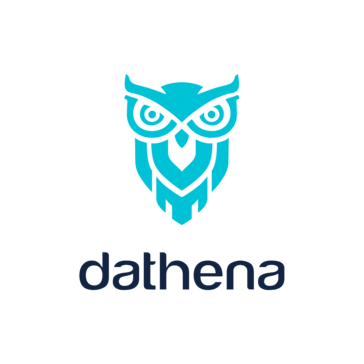3.75
Nautilus Review
Read our in-depth Nautilus review! Explore its features, pricing, security, and support options. See if its collaboration tools and updates offer value for money.

Introduction to Nautilus
Welcome to our comprehensive Nautilus review. Nautilus is a popular file manager for Linux users, known for its user-friendly interface and extensive features. If you're getting started with Nautilus, this review will provide you with a solid foundation for understanding Nautilus and its capabilities.
Nautilus simplifies file management with its intuitive design, allowing users to easily browse, organize, and access their files. Whether you're new to Linux or an experienced user, mastering Nautilus basics can significantly improve your workflow. Discover the benefits of Nautilus, from its customizable interface to its powerful search functionality, as we delve deeper into its features and functionalities.
Comprehensive overview and target audience
Comprehensive overview of Nautilus and target audience
Nautilus is a file manager designed with user-friendliness in mind. It’s a core component of the GNOME desktop environment, but its utility extends far beyond that specific ecosystem. It caters to a diverse audience, from novice computer users who need a simple way to navigate their files, to more advanced users who appreciate its customizability and powerful features.
The target audience for Nautilus includes anyone who needs a reliable and efficient way to manage files. This spans across different demographics: home users managing photos and documents, students organizing research papers, and even business professionals handling important project files. Its intuitive interface makes it accessible to beginners, while its advanced features and extensions provide power users with the tools they need.
One of the key aspects of Nautilus is its continuous development. Nautilus updates and new features are regularly introduced, enhancing its functionality and addressing user feedback. These updates often include improvements to performance, new file management options, and enhanced integration with other applications. The development team is committed to keeping Nautilus relevant and competitive in the ever-evolving landscape of file management software.
Nautilus value for money is exceptional, primarily because it is free and open-source software. This means that users can access its full range of features without any subscription fees or licensing costs. Considering its robust feature set and continuous updates, it represents a significant advantage for users looking for a cost-effective file management solution.
Nautilus security features are an important consideration. While it’s primarily a file manager and not an explicit security tool, its features contribute to a secure computing environment. For instance, it supports file permissions and access controls, allowing users to restrict access to sensitive files. Furthermore, its integration with the underlying operating system’s security mechanisms ensures that files are handled securely.
Nautilus support and training resources are available through various channels. The GNOME community provides extensive documentation, tutorials, and user forums where users can find answers to their questions and get help with troubleshooting. There are also numerous online resources, including blog posts and video tutorials, that demonstrate how to use Nautilus effectively.
When conducting a Nautilus pricing comparison, it’s crucial to note that Nautilus is free. However, comparing its features and capabilities against paid file management software is worthwhile. While some paid options might offer specialized features like cloud integration or advanced encryption, Nautilus provides a solid foundation for file management, making it a compelling choice for many users.
User experience and functional capabilities
User experience and functional capabilities
Nautilus user experience insights reveal a generally positive reception, particularly for its simplicity and ease of navigation. Users appreciate the intuitive layout, making it easy to find and manage files. However, some advanced users find its default configuration too basic and may require customization through extensions or preferences.
How to use Nautilus effectively involves understanding its core functionalities: browsing directories, creating and deleting files and folders, copying and moving files, and utilizing the search feature. A well-organized file system coupled with Nautilus’s search capabilities can significantly enhance productivity. The ability to customize the interface, such as adding toolbars or changing icon sizes, further enhances the user experience.
For those looking for a more in-depth understanding, a Nautilus implementation guide can be invaluable. This guide would cover topics such as configuring file associations, customizing context menus, and using scripting to automate file management tasks. Understanding these advanced features allows users to tailor Nautilus to their specific needs.
Despite its strengths, there are common problems with Nautilus that users may encounter. These can include slow performance with large directories, issues with file permissions, or conflicts with certain extensions. Troubleshooting these issues often involves checking system logs, updating Nautilus, or adjusting configuration settings. Online forums and communities are valuable resources for finding solutions to these problems.
Integrating Nautilus with other tools can greatly enhance its functionality. For example, integrating it with cloud storage services allows for seamless file synchronization. Similarly, integrating it with text editors or image viewers enables quick access to editing and viewing files directly from Nautilus. The extent of integration depends on the specific tools and their compatibility with Nautilus.
Staying informed about Nautilus updates and new features is crucial for maximizing its potential. Each update often includes bug fixes, performance improvements, and new functionalities. Keeping Nautilus up-to-date ensures access to the latest features and a more stable and secure file management experience.
Best practices for using Nautilus include regularly organizing files and folders, utilizing descriptive file names, and backing up important data. Employing these practices helps to maintain a clean and efficient file system, reducing the risk of data loss and improving overall productivity. Furthermore, exploring Nautilus’s advanced features and customization options can unlock its full potential and further enhance the user experience.
Who should be using Nautilus
Who should be using Nautilus
Nautilus is a versatile file manager suitable for a wide range of users. From individuals new to Linux to seasoned professionals, Nautilus offers something for everyone. Its intuitive interface makes it accessible for those who need a simple and straightforward way to manage their files. Anyone transitioning from other operating systems will find Nautilus easy to pick up and use effectively for everyday tasks.
Power users and developers will also appreciate Nautilus. Its customizability allows for tailoring the file manager to specific workflows. With the use of extensions and scripts, advanced users can automate tasks and integrate Nautilus with other tools seamlessly. A common Nautilus use case scenario involves developers managing project files, utilizing the file manager to navigate complex directory structures, and quickly access relevant documents.
Students and academics can benefit from Nautilus’ organizational capabilities. Whether managing research papers, lecture notes, or multimedia files, Nautilus provides the tools necessary to keep everything organized and accessible. Furthermore, the search functionality allows for quick retrieval of specific files or information within documents.
Businesses, both small and large, can leverage Nautilus for efficient file management. Its security features, such as file permissions and access controls, ensure that sensitive data is protected. Also, Nautilus’s integration capabilities can streamline workflows by connecting with other essential business applications.
To maximize the benefits of Nautilus, users should follow best practices for Nautilus. These include regularly organizing files and folders, using descriptive file names, and backing up important data. By adopting these habits, users can maintain a clean and efficient file system, reducing the risk of data loss and improving overall productivity. Exploring Nautilus’ advanced features and customization options further enhances the user experience and unlocks its full potential.
Unique Features offered by Nautilus
Customization options and Unique Features offered by Nautilus
Nautilus provides a wealth of customization options and unique features that contribute to its versatility and appeal. Users can personalize the interface to match their preferences, enhancing their overall experience. One notable aspect is the ability to modify toolbars, add custom actions, and change the appearance of icons and fonts. These adjustments enable users to create a file manager that aligns perfectly with their workflow.
Beyond aesthetics, Nautilus offers practical features that improve file management efficiency. The “Connect to Server” functionality allows seamless access to remote file systems, while the “Create Archive” option simplifies file compression. Furthermore, Nautilus supports tabs and split views, enabling users to work with multiple directories simultaneously. These capabilities boost productivity and streamline complex file management tasks. The ability to preview files directly within Nautilus without opening external applications is an other key feature for quicker work.
For businesses, Nautilus presents unique advantages. Nautilus for small businesses provides a cost-effective solution for organizing and managing files, especially given its open-source nature. Customizing Nautilus for business growth can involve tailoring the interface for specific departments, creating custom scripts for automated tasks, and configuring file sharing settings for collaboration. Integrating Nautilus with other tools is also crucial, allowing businesses to connect it with cloud storage services, office suites, and other essential applications. This seamless integration streamlines workflows and enhances overall efficiency.
Nautilus’s unique features extend to its extensible architecture. Through extensions, users can add new functionalities and integrations to the file manager. Whether it’s adding support for a new file format, integrating with a specific cloud service, or enhancing the search capabilities, extensions allow users to tailor Nautilus to their specific needs. This extensibility, combined with its ease of use and customization options, makes Nautilus a powerful and versatile file manager for a wide range of users and organizations.
Pain points that Nautilus will help you solve
Nautilus addresses several common pain points encountered in file management. Many users struggle with disorganized files and difficulty locating specific items. Nautilus’s intuitive interface and powerful search functionality significantly alleviate these issues. Its clear visual layout and straightforward navigation make it easy to browse directories and find files quickly. The search tool, with its advanced filtering options, allows users to pinpoint exactly what they need, even within complex directory structures.
Another frequent challenge is the need to perform repetitive file management tasks. Nautilus offers customization options to automate many of these processes. Users can create scripts to handle tasks such as batch renaming, file conversion, or data backup. These scripts, integrated directly into Nautilus, save time and reduce the risk of errors. This is particularly valuable for users who regularly work with large volumes of files.
Collaboration and file sharing can also be sources of frustration. Nautilus’s integration with network protocols simplifies accessing shared folders and resources. Whether connecting to a local network or a remote server, Nautilus provides a seamless experience for accessing and managing files across different locations. For businesses, customizing Nautilus for business growth includes setting up shared folders with specific permissions, ensuring secure and efficient collaboration.
Nautilus for different businesses sizes provides great capabilities, for example: smaller businesses can use it to organize project files and resources, while larger organizations can tailor it to meet specific departmental needs, optimizing efficiency and collaboration across teams. Integrating Nautilus with other tools, such as cloud storage services or office suites, further streamlines workflows by connecting file management directly with other essential applications.
Finally, users often struggle with a cluttered and overwhelming file management interface. Nautilus offers extensive customization options to address this. Users can personalize the toolbar, adjust icon sizes, and configure context menus to suit their individual preferences. This level of customization creates a more comfortable and efficient working environment, reducing distractions and improving overall productivity.
Scalability for business growth
Scalability for business growth
Scalability is a critical consideration for businesses of all sizes, and Nautilus can play a significant role in supporting growth. While Nautilus is a file manager and not a dedicated scalability solution, its features and customization options can contribute to a more scalable infrastructure. This is achieved through efficient file organization, streamlined workflows, and the ability to adapt to changing business needs.
One of the key aspects of scalability is the ability to manage increasing volumes of data. Nautilus’s powerful search functionality, coupled with well-organized file structures, enables users to quickly locate and access files even as the data grows exponentially. Furthermore, its support for network protocols allows for seamless integration with network storage solutions, ensuring that files can be accessed and managed from anywhere within the organization.
Customizing Nautilus for business scalability involves tailoring the file manager to meet the specific needs of a growing business. This can include creating custom scripts to automate repetitive tasks, such as file conversion or data backup. It also involves configuring file sharing settings to ensure that employees can easily collaborate on projects without compromising security. Customizing Nautilus for business growth could mean implementing standardized file naming conventions and directory structures to facilitate easier onboarding for new employees and improve overall data accessibility.
Nautilus can also be integrated with other tools and systems to further enhance scalability. For example, integrating it with cloud storage services allows for seamless file synchronization and backup, ensuring that data is protected in the event of a disaster. Integrating it with project management software enables users to easily access and manage project files directly from Nautilus, streamlining workflows and improving collaboration. These integrations are key to making Nautilus a valuable asset for businesses looking to scale efficiently.
Final Verdict about Nautilus
Considering its strengths and weaknesses, the final verdict on Nautilus is largely positive. It stands as a capable and user-friendly file manager, especially well-suited for those new to Linux or seeking a simple, intuitive experience. Its customizability, while not as extensive as some alternatives, provides enough flexibility to tailor the interface and functionality to individual needs. The continuous updates and active community support are also significant advantages, ensuring that Nautilus remains relevant and improves over time.
However, power users with highly specific requirements may find Nautilus somewhat limiting out of the box. While extensions can enhance its capabilities, the core functionality is geared towards ease of use rather than advanced features. The performance issues reported by some users, particularly when dealing with large directories, are also a valid concern. Addressing these performance bottlenecks would undoubtedly improve the overall user experience.
Despite these minor drawbacks, Nautilus remains a solid choice for the majority of users. Its ease of use, coupled with its essential file management features, makes it a reliable and efficient tool for everyday tasks. For those seeking a straightforward and customizable file manager, Nautilus is definitely worth considering. Its integration with the GNOME desktop environment is seamless, and its intuitive design makes it accessible to users of all skill levels. Therefore, taking into consideration all factors, our final verdict on Nautilus is that it’s a dependable, user-friendly, and highly accessible file management solution, earning its place as a standard on many Linux systems.
Advantage
Disadvantage
Low impact exercise good for the joints
Easy to assemble, saving you time
Track fitness progress via app connectivity
Compact design is great for small spaces
Full body workout engages multiple muscles
Disadvantage
Higher price point compared to basic models
Assembly can be time-consuming and complex
Large footprint may not suit small spaces
Some users report issues with electronic components
Limited workout variety compared to gym equipment
Rating
Flex Card
$336 24 Sessions
- 24 sessions
- No time limit on usage
Flex Card
$336 24 Sessions
Flex Card
$468 36 Sessions
- 36 sessions
- No time limit on usage
Flex Card
$468 36 Sessions
Flex Card
$576 48 Sessions
- 48 sessions
- No time limit on usage
Flex Card
$576 48 Sessions
Annual Membership
$150 per Year
- Free 7-day trial
- Access to 15 different training programs
- Access to more than 70 workout videos
- Access to more than 50 different live training classes each week
- More than 350 healthy recipes approved by our nutritionists
- Discover more than 15 delicious meal plans tailored to your objectives
- Accessible on all devices
12-Week Membership
$268.50 per Year
- 12-week membership (26-64 years old)
12-Week Membership
$238.50 per Year
- 12-week membership (25 years old and under
- 65 years old and over)
Standard
$166 per Year
- Chart of the Day
- Notes
- Mobile App
Explorer
£495 per Year
- 1 Year Nautilus Subscription
- 150 Pupils or less
- Unlimited Users
- Unlimited Storage
- Technical Support
Explorer
£595 per Year
- 1 Year Nautilus Subscription
- 151-350 Pupils
- Unlimited Users
- Unlimited Storage
- Technical Support
Explorer
£695 per Year
- 1 Year Nautilus Subscription
- 351 Pupils or more
- Unlimited Users
- Unlimited Storage
- Technical Support
Explorer
£300 per Year
- 1 Year Nautilus Subscription
- +£1 per pupil
- Unlimited Users
- Unlimited Storage
- Technical Support
Pioneer
£645 per Year
- 1 Year Nautilus Subscription + integrated CPD tools
- 150 Pupils or less
Pioneer
£795 per Year
- 1 Year Nautilus Subscription + integrated CPD tools
- 151-350 Pupils
Pioneer
£945 per Year
- 1 Year Nautilus Subscription + integrated CPD tools
- 351 Pupils or more
Pioneer
£600 per Year
- 1 Year Nautilus Subscription + integrated CPD tools
- +£1 per pupil
Salutè
$988 per Year
- 3 Bottles of Wine Monthly
- NVA Picks
- Free Delivery
Annual Membership
$150 per Year
12-Week Membership
$268.50 per Year
12-Week Membership
$238.50 per Year
Standard
$166 per Year
Explorer
£495 per Year
Explorer
£595 per Year
Explorer
£695 per Year
Explorer
£300 per Year
Pioneer
£645 per Year
Pioneer
£795 per Year
Pioneer
£945 per Year
Pioneer
£600 per Year
Salutè
$988 per Year
Monthly Membership
$20.99 per Month
- Free 7-day trial
- Access to 15 different training programs
- Access to more than 70 workout videos
- Access to more than 50 different live training classes each week
- More than 350 healthy recipes approved by our nutritionists
- Discover more than 15 delicious meal plans tailored to your objectives
- Accessible on all devices
Standard
$199 per Month
- Chart of the Day
- Notes
- Mobile App
Thrill Seekers
$78 per Month
- 2 Bottles of Wine Monthly
- NVA Picks
- Free Delivery
Rising Star
$98 per Month
- 3 Bottles of Wine Monthly
- NVA Picks
- Free Delivery
Monthly Membership
$20.99 per Month
Standard
$199 per Month
Thrill Seekers
$78 per Month
Rising Star
$98 per Month
1 Session Pass
$20 One_time
- One session pass
Premiere
$53485 One_time
- Premiere
Reserve
$62705 One_time
- Reserve
Black Label
$76645 One_time
- Black Label
1 Session Pass
$20 One_time
Premiere
$53485 One_time
Reserve
$62705 One_time
Black Label
$76645 One_time
Nautilus Hybrid
$55385 One_time
Short Term Membership
$44.75 bi-weekly
- Membership fees payable every two weeks (26-64 years old)
Short Term Membership
$39.75 bi-weekly
- Membership fees payable every two weeks (25 years old and under
- 65 years old and over)
Short Term Membership
$44.75 bi-weekly
Short Term Membership
$39.75 bi-weekly
Professional
$2500 per Quarter
- Chart of the Day
- Notes
- Idea Hopper
- Portfolio AI
- Wheelhouse
- Dynamic Asset Allocation Strategy
- Proprietary Tools
- Mobile App
Professional
$2500 per Quarter
Web Based
Windows
Mac OS
Linux
Android
iOS
Phone Support
Email/Help Desk
AI Chat Bot
Live Support
24/7 Support
Forum & Community
Knowledge Base
Live Online
Documentation
Videos
In Person
Webinars
Company: Nautilus is part of the GNOME project, which is a free and open-source software project. It doesn't have a single, formal "company" behind it in the traditional sense. It's developed by a community of contributors. There isn't a single point of contact for the entire GNOME project either. Therefore, I cannot provide the requested information in the format specified.Nautilus is part of the GNOME project, which is a free and open-source software project. It doesn't have a single, formal "company" behind it in the traditional sense. It's developed by a community of contributors. There isn't a single point of contact for the entire GNOME project either. Therefore, I cannot provide the requested information in the format specified.
Implementation
Web Based
Windows
Mac OS
Linux
Android
iOS
Support
Phone Support
Email/Help Desk
AI Chat Bot
Live Support
24/7 Support
Forum & Community
Knowledge Base
Training
Live Online
Documentation
Videos
In Person
Webinars
Group text
Company: Nautilus is part of the GNOME project, which is a free and open-source software project. It doesn't have a single, formal "company" behind it in the traditional sense. It's developed by a community of contributors. There isn't a single point of contact for the entire GNOME project either. Therefore, I cannot provide the requested information in the format specified.Nautilus is part of the GNOME project, which is a free and open-source software project. It doesn't have a single, formal "company" behind it in the traditional sense. It's developed by a community of contributors. There isn't a single point of contact for the entire GNOME project either. Therefore, I cannot provide the requested information in the format specified.
Alternative Products
Linux
Documentation, Videos
Phone Support, Email/Help Desk, Live Support, Knowledge Base
Frequently Asked Questions
Is Nautilus worth it?
Whether Nautilus is worth it depends entirely on your intellectual curiosity and interests. If you crave thought-provoking essays, explorations of science, philosophy, and culture, and enjoy stretching your mind, then absolutely, Nautilus is worth the investment of your time.
How can Nautilus help me?
Nautilus can help you expand your understanding of the world, connect disparate ideas, and spark new perspectives. It offers in-depth analyses of complex topics, making them accessible and engaging for a broad audience. It’s a fantastic resource for staying intellectually stimulated and informed.
What kind of content does Nautilus Review publish?
Nautilus Review publishes long-form articles, essays, features, interviews, and occasional multimedia pieces focusing on science, philosophy, and culture, often exploring the connections between them. They delve deep into specific topics, offering nuanced perspectives and insightful analysis.
Who is the typical reader of Nautilus Review?
The typical reader of Nautilus Review is intellectually curious, well-read, and interested in exploring the big questions of science, philosophy, and culture. They appreciate in-depth analysis, thought-provoking arguments, and engaging storytelling. They’re likely lifelong learners who enjoy expanding their knowledge and challenging their assumptions.
How often is new content published on Nautilus Review?
New content is typically published weekly on Nautilus Review, with one main feature story, and often other shorter articles or blog posts being added.
Does Nautilus Review have a print version?
Nautilus Review does not have a print version. It is exclusively an online publication.
How can I submit my work to Nautilus Review?
Submission guidelines for Nautilus Review can be found on their website, typically in a section titled “Submissions” or “Contribute.” They usually have specific requirements for the types of pieces they accept, word counts, and the submission process.
Is there a subscription fee to access Nautilus Review content?
Access to Nautilus Review content is available through both free and paid options. They typically offer a limited number of free articles per month before requiring a subscription to unlock full access. A subscription removes the article limit and provides additional features.







